The Vancouver Canucks are the breakout team of the NHL season - and it isn't close. Projected by credible observers to either miss the playoffs or barely squeak in, they've blown away expectations.
The 12-4-1 Canucks woke up Saturday with the league's best goal differential (plus-31), third-most points (25), and fifth-highest points percentage (.735). They're on pace for 121 points, or four more than the stacked 2010-11 Canucks team that lost a seven-game Stanley Cup Final.
Surely, Vancouver can't keep this up. Or can it?
Let's put the Canucks through a stress test.
First of all, why and how is this team winning so much?
Star power.
Three players sit atop the NHL scoring leaderboard with 27 points and all three are Canucks: centers Elias Pettersson and J.T. Miller, and defenseman Quinn Hughes. One goalie has a save percentage higher than .930 through 500 minutes: Vancouver's Thatcher Demko.
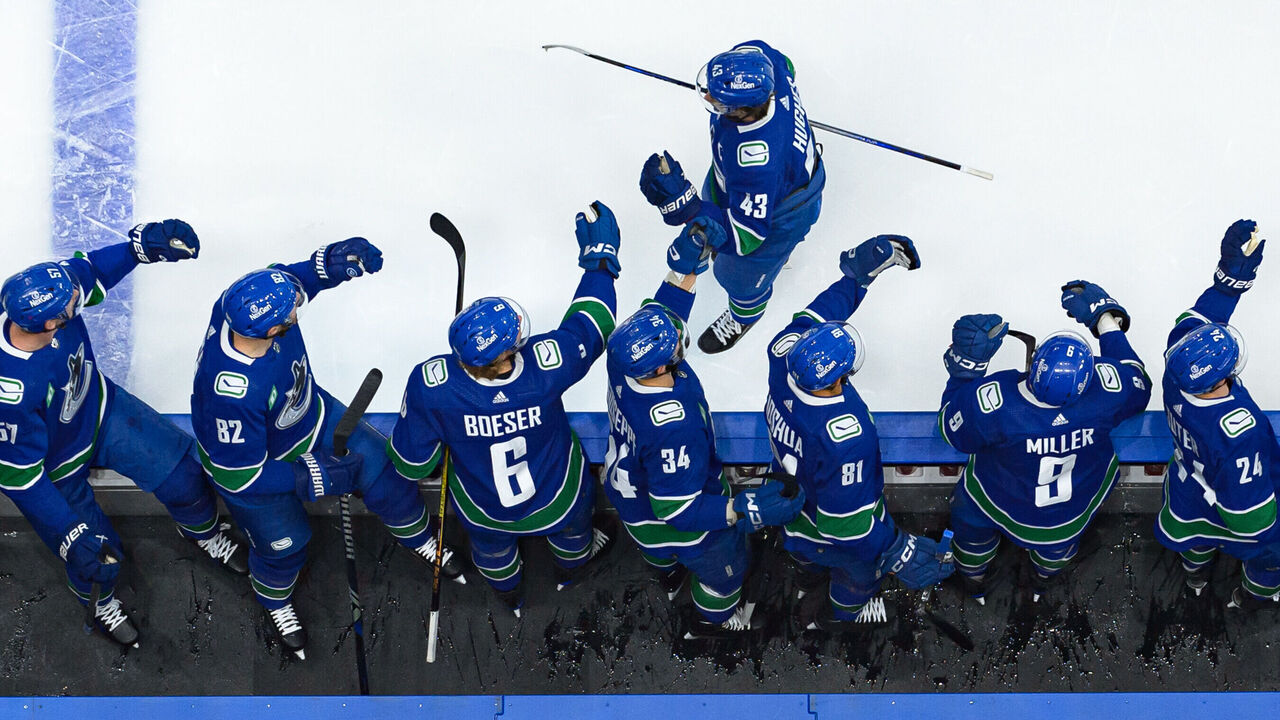
Hughes, the most dominant, is flat-out controlling the pace, flow, and score of games, which is why he's an early front-runner for the Norris and Hart trophies. Pettersson and Miller are driving play at superstar levels, as well, while Demko would probably win the Vezina if the season ended today.
Those are stretches half the league would kill to have from one player.
Right, and four of them simultaneously have put the Canucks in elite company: first in goals for (4.2 per game) and fourth in goals against (2.4).
The roster's second tier, headlined by active blue-liner Filip Hronek (plus-10 at five-on-five) and sniping winger Brock Boeser (tied for the NHL lead with 13 goals), also deserves credit. The same goes for Rick Tocchet and his coaching staff. Vancouver is organized, disciplined, and decisive with the puck.
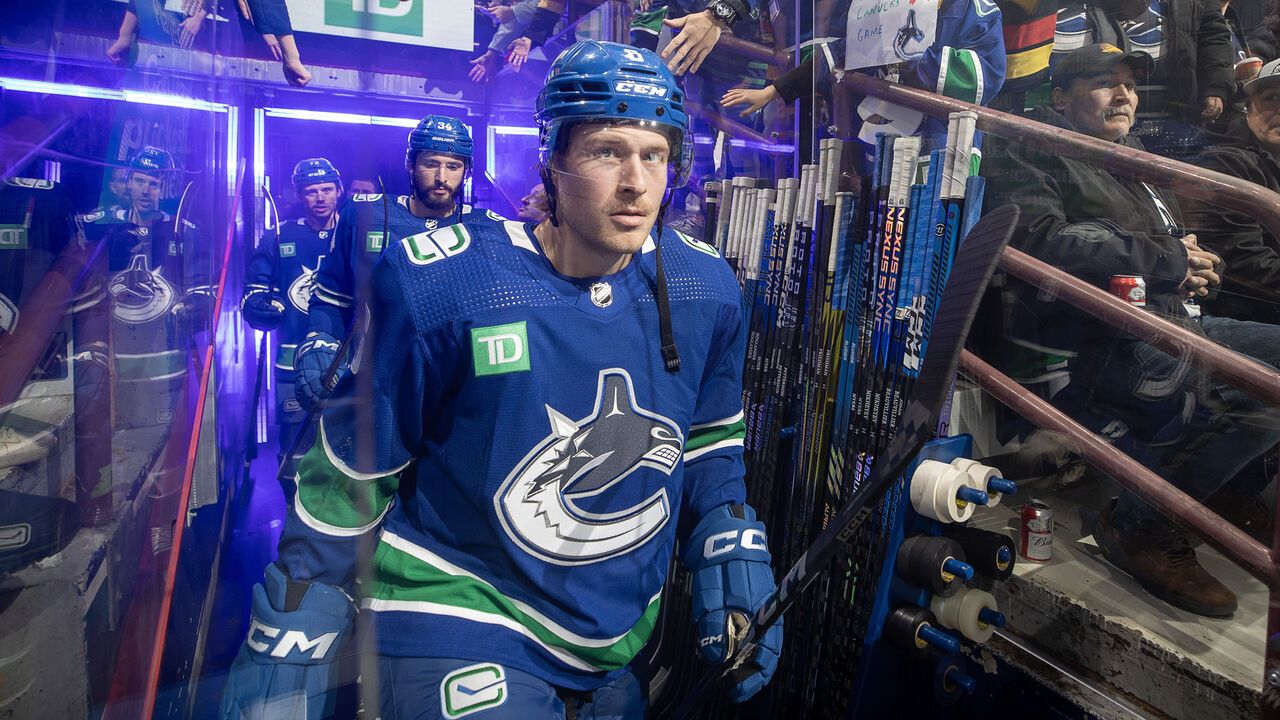
But this wasn't supposed to happen? What gives?
The Canucks own the highest team shooting percentage and second-highest team save percentage, suggesting they're benefiting from good puck luck.
The eye test bears that out, and so does a deeper dive into the numbers. The gap between Vancouver's shooting percentage (14.4) and No. 2 Ottawa's (12) is roughly the same as the jump from Ottawa to No. 23 St. Louis (9.5).
The Canucks also lead the league in goals scored above expected and rank second in goals saved above expected, according to Sportlogiq. Translation: the results (number of goals scored and allowed, wins and losses) aren't aligned with the process (quality and quantity of scoring chances generated and allowed).
Yikes. Sounds … unsustainable. Is that the appropriate word?
Confirmed: "Unsustainable" is the word being used to describe the Canucks' play so far. And it's hard to argue with that characterization, given the extreme percentages. Further, only two clubs have enjoyed easier schedules, according to Hockey Reference's strength of schedule metric.
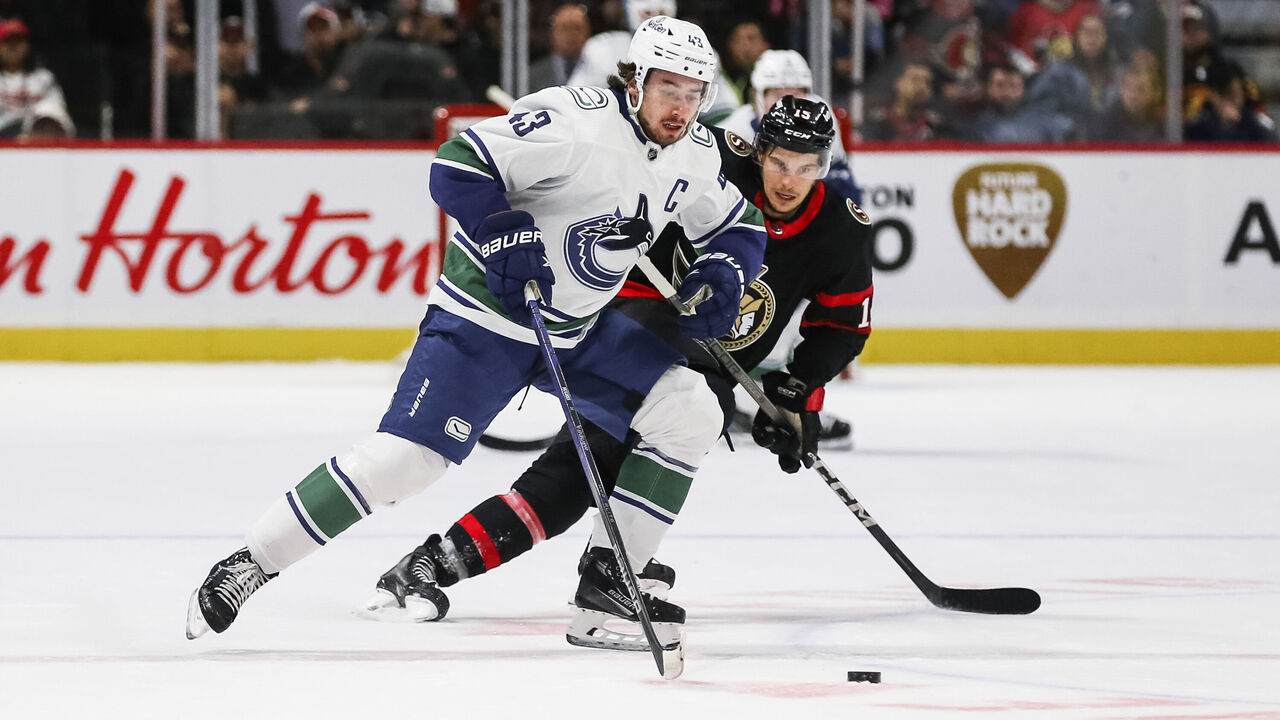
Here are some more granular data points:
The 2022-23 Canucks scored on 14.7% of scoring chances they generated off the rush, per Sportlogiq. Pretty good. This year? They've scored on 23.9% of rush chances, an unsustainably good rate, considering NHL teams this season are at about 11%.
Demko's save percentage on shots from the inner slot (the most dangerous area of the ice) is .920. That's outstanding, especially considering Boston's Jeremy Swayman ranks second at .905. What isn't outstanding: The Canucks are allowing the fifth-most inner-slot shots per game. Demko, as good as he is, can't hold down the fort forever.
Whoa, whoa, whoa. Are you saying the Canucks suck?
Nope. The opposite, actually.
All those red flags are balanced by reasons for optimism.
Vancouver's rarely stumbled into a victory this season. On average, the Canucks have been leading for roughly 35 minutes, tied for 15 minutes, and trailing for 10.
They've outscored the opposition by three goals or more in seven of their 12 wins, and the abundance of blowouts suggests they aren't relying solely on one clutch moment. Andrei Kuzmenko, Ilya Mikheyev, Conor Garland, and Carson Soucy are among many effective depth pieces raising Vancouver's floor. (Soucy is currently sidelined with a lower-body injury.)
The power play is humming at 33.3%, which is tied for the second-best rate in the NHL. It'll likely cool off soon, but Vancouver has the personnel to stay in the top 10 all season.
The five-on-five shot maps look drastically different in Tocchet's first full season behind the bench. On offense, Vancouver is firing shots far more frequently from in tight, especially in and around the left faceoff dot. On defense, as noted above, the opposition is also firing more often from in tight - specifically the inner slot. You can take the bad with the good for now.
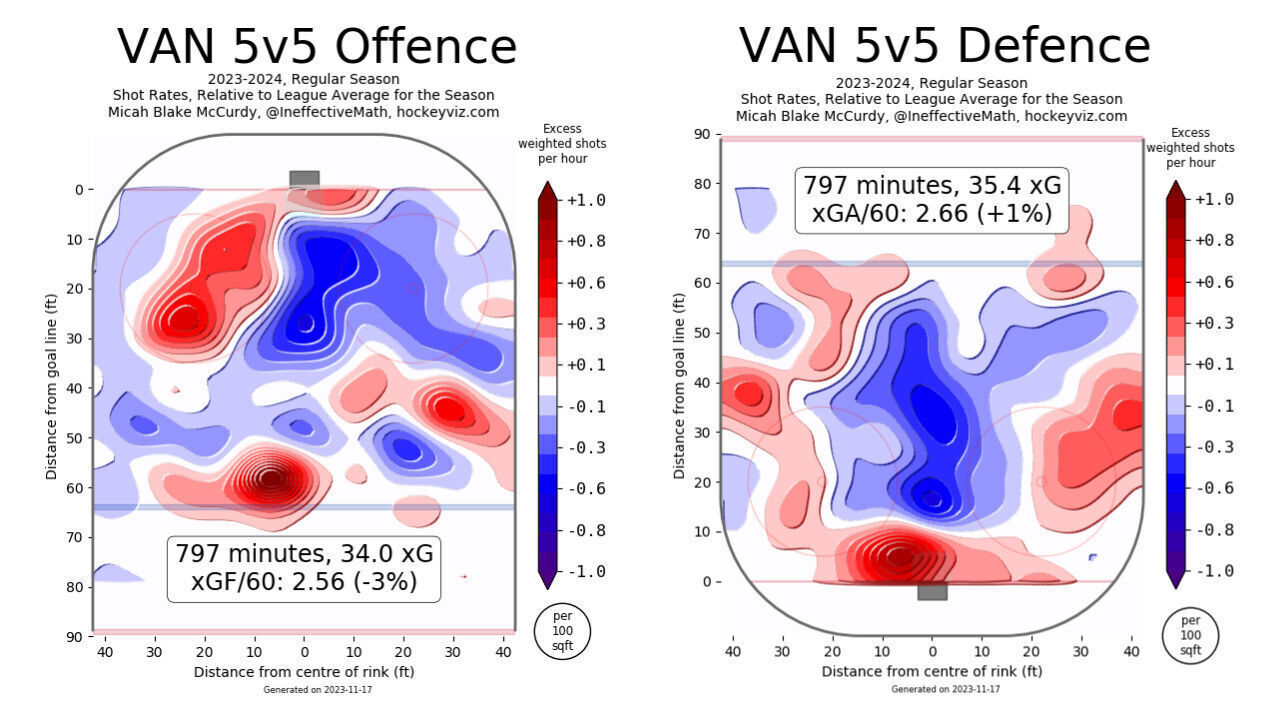
That's fair. There's still plenty of time to tighten up defensively.
Yep, and there's continued work to do: the club ranks 22nd in penalty kill percentage (75.9) and 25th in shorthanded goals against per 60 minutes (9.6). Those rates are mediocre, in general, but to the Canucks, they're actually a step in the right direction. Last season's team finished 32nd in PK% (71.6) and 31st in shorthanded GA/60 (10.5).
Overall, the Canucks' success has a foundation. They're highly competitive. They play with connectivity and swagger that matches their record. And they rank first in generating scoring chances off the forecheck and second in limiting forecheck chances against - a recipe for success come playoff time.
What are the markers of a Cup contender? Do the Canucks have them?
Go through the rosters of the salary-cap era Cup champions and finalists and nearly all of them have at least one star forward, at least one star defenseman, (usually) a star goalie, and a top-tier coach. Pettersson, Hughes, Demko, and Tocchet check those key boxes.
Cup contenders also tend to have strong underlying numbers. At the moment, Vancouver's underlying numbers lean closer to the concerning end of the spectrum than the hopeful end. The regular season's one-fifth over, so there's ample runway for those trends to get significantly better (or worse).
Depth is another contender staple. The Canucks boast a capable second tier, but the bottom of the lineup - specifically on the back end - simply isn't good enough. Perhaps if the wins keep piling up, the front office will reward the team with a defensive upgrade before the new year.
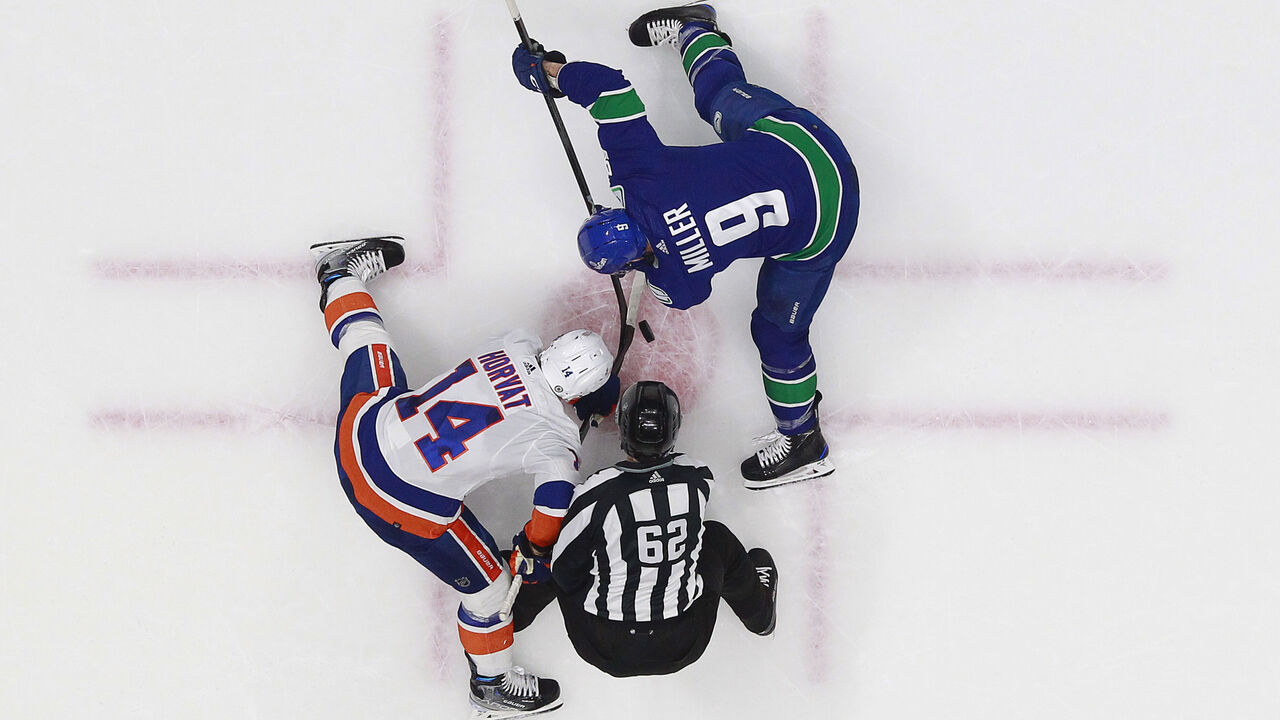
So, what's the verdict: are the Canucks legit or not?
Before answering that question, some quick playoff-related intel.
Hockey analytics websites HockeyViz and MoneyPuck are giving Vancouver 79.9% and 74.1% chances of making the playoffs, respectively. Those are promising odds 17 games into the season, and the Canucks can elevate them over the next two weeks. The club's next six games are against Seattle (twice), San Jose (twice), Colorado, and Anaheim.
As for the verdict: Vancouver's definitely a playoff-caliber team, and one that can potentially win a series in a top-heavy Western Conference. The Canucks' star power is real, and their year-over-year improvement isn't a complete fluke. However, to crown them a Cup contender at this point would be foolish - I won't do it, and you can't make me. The sample size is strong but too small, and the warning signs strongly hint at regression and a return to Earth.
The question is: how hard will they fall?
John Matisz is theScore's senior NHL writer. Follow John on Twitter (@MatiszJohn) or contact him via email (john.matisz@thescore.com).
Copyright © 2023 Score Media Ventures Inc. All rights reserved. Certain content reproduced under license.